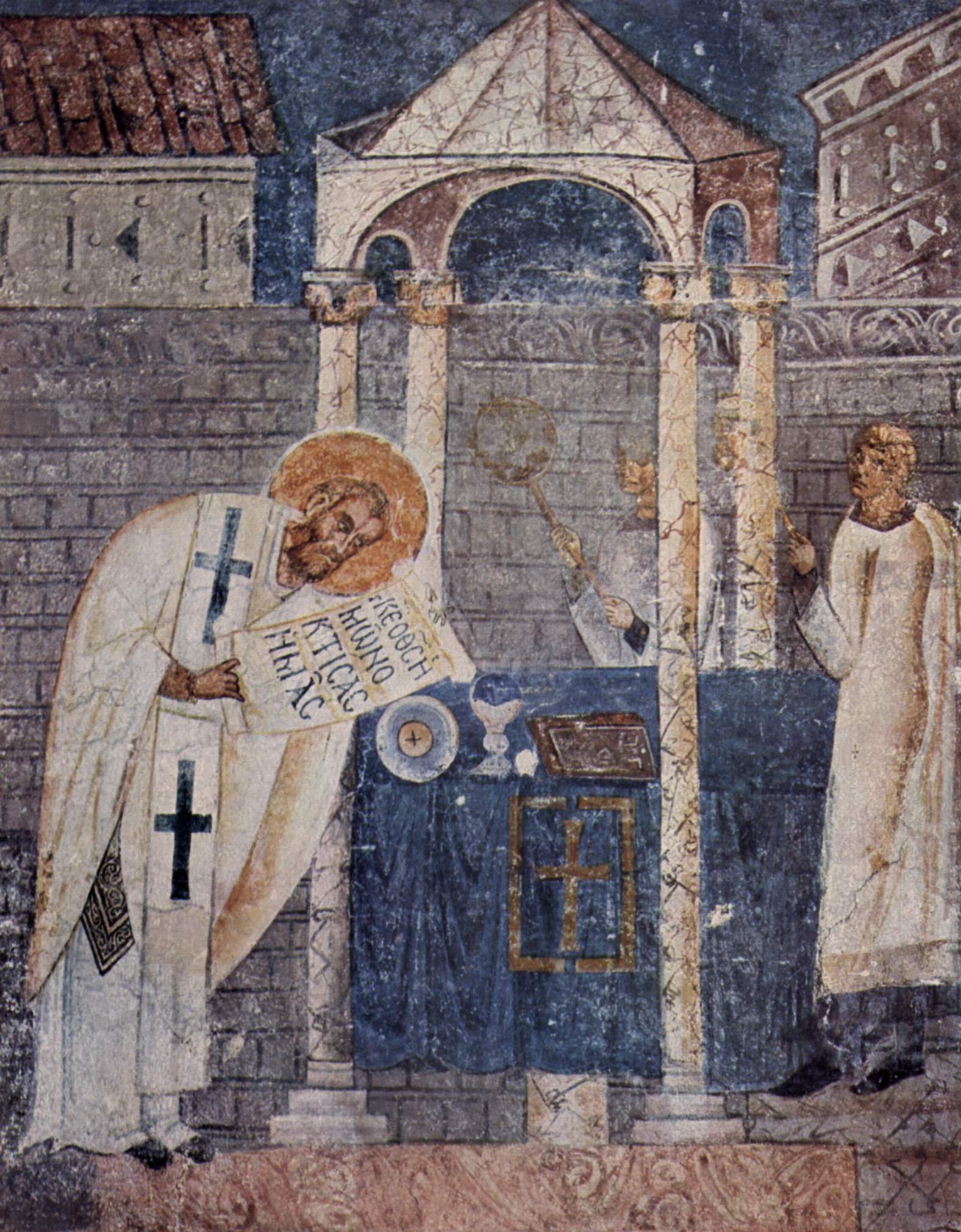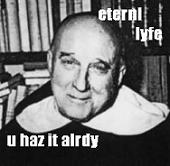
Catholicism
September 23, 2023
“One cannot then appeal to these rights of man in order to oppose the interventions of the Magisterium” – Donum Veritatis §36
Posted by aelianus under Anthropology, Catholicism, Disorder, eucumminism, gaudium in veritate, History, ius naturale, Magisterium, Oxford Movement, Religious LibertyLeave a Comment
December 26, 2022
The Dogmatic Authority of the Unanimous Consent of the Fathers
Posted by aelianus under Catholicism, Modernism1 Comment

Popular apologist Jimmy Akin (appropriately distinguished by the fact that he sports a cowboy hat) has been propagating a serious error concerning the authority of the Fathers of the Church. He has been claiming that because Trent’s Decree Concerning The Edition And Use Of The Sacred Books was issued on the same day as the Decree Concerning the Canonical Scriptures (8th April 1546) it should be taken as a disciplinary decree and therefore its requirement that the Scriptures never be interpreted ‘contrary to the unanimous teaching of the Fathers’ should be taken as purely disciplinary. Furthermore, he opines, because the 1983 Code of Canon Law makes no reference to this ‘rule’ it is lapsed and no longer binds the faithful. The motive for this preposterous claim appears to be the desire to unburden himself of unfashionable teachings of the Fathers and to clear the ground for ultramontane magisterial positivism (especially in regard to the interpretation of Genesis).
The problem for Mr Akin is that, even granting his claims about the disciplinary character of the Decree Concerning The Edition And Use Of The Sacred Books, the requirement that the Scriptures never be interpreted ‘contrary to the unanimous teaching of the Fathers’ is not confined to this decree. Exactly the same requirement in included in the Creed of Pius IV or Professio Fidei Tridentina the Church’s rule of faith for four centuries proclaimed at the end of Trent by Pius IV and solemnly affirmed not once but twice by Vatican I. This dogmatic and irreformable statement of the ‘true Catholic faith, outside of which no one can be saved’ resoundingly affirms that:
“I also accept the Holy Scripture according to that sense which holy mother the Church hath held, and doth hold, and to whom it belongeth to judge the true sense and interpretations of the Scriptures. Neither will I ever take and interpret them otherwise than according to the unanimous consent of the Fathers.”
The authority of the Fathers, which reaches its highest point in their unanimous interpretation of scripture, is the guarantee of the unchanging sense of the Church’s teaching delivered once and for all to the Apostles and preserved inviolate until the Lord’s return. As Vatican I put it,
“For the doctrine of the faith which God has revealed is put forward not as some philosophical discovery capable of being perfected by human intelligence, but as a divine deposit committed to the spouse of Christ to be faithfully protected and infallibly promulgated. Hence, too, that meaning of the sacred dogmas is ever to be maintained which has once been declared by Holy mother Church, and there must never be any abandonment of this sense under the pretext or in the name of a more profound understanding.”
December 4, 2022

The holy Roman church, founded on the words of our Lord and Saviour … firmly believes, professes and teaches that the legal prescriptions of the old Testament or the Mosaic law, which are divided into ceremonies, holy sacrifices and sacraments, because they were instituted to signify something in the future, although they were adequate for the divine cult of that age, once our lord Jesus Christ who was signified by them had come, came to an end and the sacraments of the new Testament had their beginning. Whoever, after the passion, places his hope in the legal prescriptions and submits himself to them as necessary for salvation and as if faith in Christ without them could not save, sins mortally. It does not deny that from Christ’s passion until the promulgation of the gospel they could have been retained, provided they were in no way believed to be necessary for salvation. But it asserts that after the promulgation of the gospel they cannot be observed without loss of eternal salvation. Therefore it denounces all who after that time observe circumcision, the sabbath and other legal prescriptions as strangers to the faith of Christ and unable to share in eternal salvation, unless they recoil at some time from these errors. Therefore it strictly orders all who glory in the name of Christian, not to practise circumcision either before or after baptism, since whether or not they place their hope in it, it cannot possibly be observed without loss of eternal salvation.
The baptismal part of Feeneyism consists in the claim that, while baptism of desire and blood are possible (they don’t like the terms) they never actually save anyone. More precisely, if elect persons do receive baptism of desire they will subsequently receive water baptism and if elect persons receive baptism of blood that means, having already received water baptism and fallen into (now forgiven mortal or) venial sin, they have the temporal punishment for this entirely remitted (as if in a second water baptism) by martyrdom. A person could die with baptism of desire and be saved but no one ever is. The basis for this claim is John 3:5 which is interpreted as meaning that no one who fails to receive water baptism is predestined. This appears to have been the mature position of St Augustine (Rahner thought so).
The above definition of Florence (Cantate Domino) is interesting from this perspective. St Thomas More held that no living human person other than Our Lady was in a state of grace at 3pm on 15th Nisan 30 A.D. If he was right then the above definition of Florence is not interesting from this perspective. Imagine, however, for the sake of argument that St Thomas More was wrong. It would be reasonable to assume that there were Jews (say in India or China) invincibly ignorance of Jesus of Nazareth and in a state of grace on on 15th Nisan 30 A.D. It is not unreasonable to imagine some of them persisting in a state of grace and invincible ignorance of Jesus of Nazareth until 20th Nisan 30 A.D. and then dying and being saved. However, this definition excludes that possibility. It says “from Christ’s passion until the promulgation of the gospel they [the ceremonies of the Old Law] could have been retained, provided they were in no way believed to be necessary for salvation”. This seems to imply that a person invincibly ignorance of Jesus of Nazareth and in a state of grace after the Passion cannot be saved. As invincible ignorance is not a sin and the performance of the rites of the Old Law does not offend against natural law the only explanation for this would be that no one who is invincibly ignorant of Jesus of Nazareth is predestined.
This by no means proves Feeneyism and rests on the hypothetical assumption that St Thomas More is wrong on this point (and, for the record, I don’t think he is) but it is interesting none the less and makes the scenario the Feeneyites propose fractionally more probable.
March 10, 2022
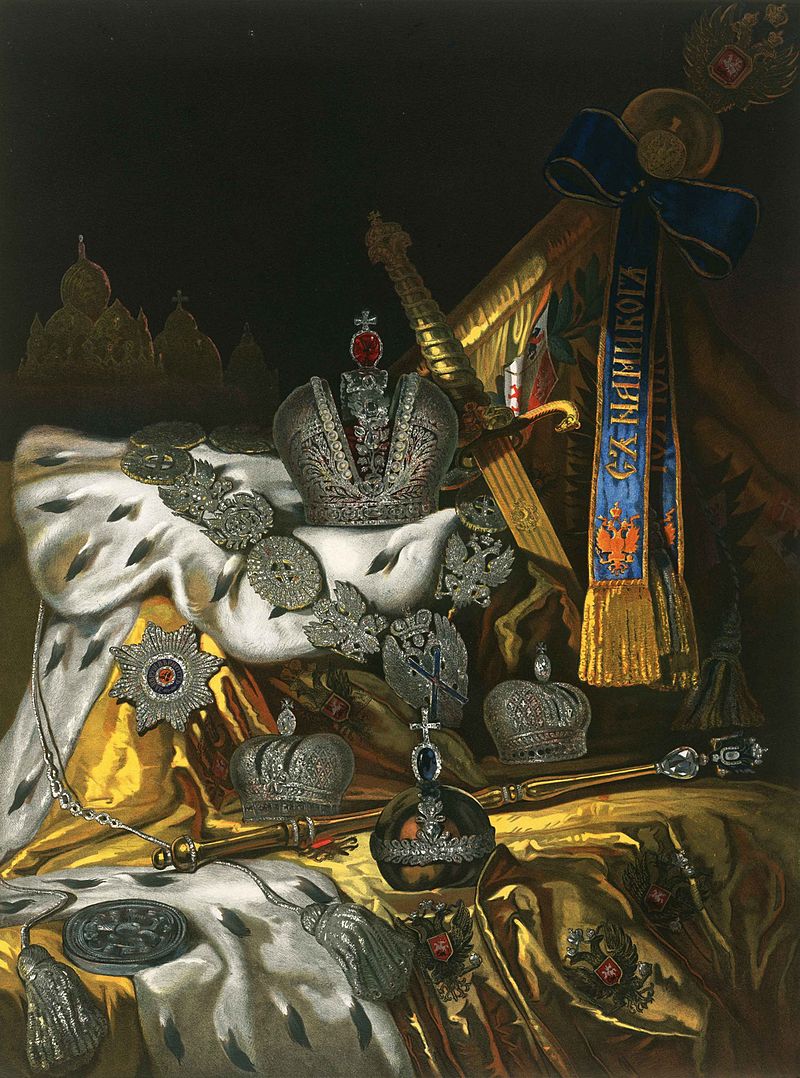
Pope Francis has deposed a bishop with no process while making no charges against him. Perhaps there is some secret explanation for this but there does not appear to be. This seems to be an almost insanely arbitrary use of ordinary universal jurisdiction.
St Gregory the Great, pray for us!
“My honour is the honour of the whole Church. My honour is the steadfast strength of my brethren. Then do I receive true honour, when it is denied to none of those to whom honour is due.” St Gregory the Great, Ep. ad Eulog. Alexandrin. (Letter to Eulogius of Alexandria), VIII 29 (30) (MGH, Ep. 2, 31 28-30, PL 77, 933).
Can the Pope Just Fire a Bishop?
October 9, 2021
Canon 3
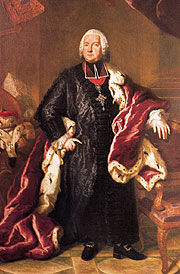 “It has come to the notice of the sacred synod that some of those enrolled in the clergy are, for sordid gain, acting as hired managers of other people’s property, and are involving themselves in worldly business, neglecting the service of God, frequenting the houses of worldly persons and taking over the handling of property out of avarice. So the sacred and great synod has decreed that in future no one, whether a bishop, a cleric or a monk, should either manage property or involve himself as an administrator of worldly business, unless he is legally and unavoidably summoned to take care of minors, or the local bishop appoints him to attend, out of fear of the Lord, to ecclesiastical business or to orphans and unprovided widows and persons in special need of ecclesiastical support. If in future anyone attempts to transgress these decrees, he must be subject to ecclesiastical penalties.”
“It has come to the notice of the sacred synod that some of those enrolled in the clergy are, for sordid gain, acting as hired managers of other people’s property, and are involving themselves in worldly business, neglecting the service of God, frequenting the houses of worldly persons and taking over the handling of property out of avarice. So the sacred and great synod has decreed that in future no one, whether a bishop, a cleric or a monk, should either manage property or involve himself as an administrator of worldly business, unless he is legally and unavoidably summoned to take care of minors, or the local bishop appoints him to attend, out of fear of the Lord, to ecclesiastical business or to orphans and unprovided widows and persons in special need of ecclesiastical support. If in future anyone attempts to transgress these decrees, he must be subject to ecclesiastical penalties.”
September 2, 2021
July 23, 2021
Cardinal Burke: The Suppression of the Usus Antiquior exceeds the power of the Roman Pontiff
Posted by aelianus under Catholicism, liturgy[135] Comments
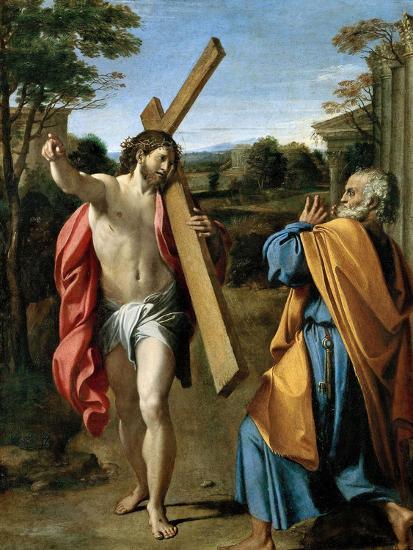
But can the Roman Pontiff juridically abrogate the Usus Antiquior? The fullness of power (plenitudo potestatis) of the Roman Pontiff is the power necessary to defend and promote the doctrine and discipline of the Church. It is not “absolute power” which would include the power to change doctrine or to eradicate a liturgical discipline which has been alive in the Church since the time of Pope Gregory the Great and even earlier. The correct interpretation of Article 1 [of Traditionis custodes] cannot be the denial that the Usus Antiquior is an ever-vital expression of “the lex orandi of the Roman Rite.” Our Lord Who gave the wonderful gift of the Usus Antiquior will not permit it to be eradicated from the life of the Church. It must be remembered that, from a theological point of view, every valid celebration of a sacrament, by the very fact that it is a sacrament, is also, beyond any ecclesiastical legislation, an act of worship and, therefore, also a profession of faith. In that sense, it is not possible to exclude the Roman Missal, according to the Usus Antiquior, as a valid expression of the lex orandi and, therefore, of the lex credendi of the Church. It is a question of an objective reality of divine grace which cannot be changed by a mere act of the will of even the highest ecclesiastical authority.
https://www.cardinalburke.com/presentations/traditionis-custodes
October 21, 2020
Happier Times
Posted by aelianus under Catholicism, Chivalry, Christendom, Christianity, Habsburgs, respublica1 Comment

Remember, O Lord, our most devout and faithful Emperor Charles, whom you have set to rule on the earth. Crown him with a weapon of truth, a weapon of good will; let your shadow fall upon his head in the day of war; strengthen his arm, exalt his right-hand, establish his empire; subdue beneath him all barbarous nations that desire to make war; grant him deep and enduring peace; speak good things to his heart for your Church and for all your people; so that by his tranquility we may lead quiet and peaceful lives, in all piety and purity.
July 5, 2020
In a passage in John Paul II’s Catechism entitled “The Necessity of Baptism” the CCC (1257) asserts “The Church does not know of any means other than Baptism that assures entry into eternal beatitude”. It goes on the insist that “God has bound salvation to the sacrament of Baptism, but he himself is not bound by his sacraments.” Nevertheless, the earlier statement is striking in its implications, implications which seem generally to be overlooked. If the Church does not know of any means other than Baptism that assures entry into eternal beatitude the fact that good could save people without baptism does not at all entitle us to teach that He will do so. When various saints have claimed that some persons are saved without baptism this must either be taken as pure speculation or one must take the CCC as rejecting their claims. Indeed, John 3:5 “Amen, amen I say to thee, unless a man be born again of water and the Holy Ghost, he cannot enter into the kingdom of God” might very well be taken as asserting as a matter of fact no one dies in a state of grace who has not been sacramentally baptised. Perhaps this cannot be safely taught but can it be safely denied?
April 1, 2020

Through a large part of the world all public Masses have been cancelled. Why? Supermarkets are open. If absolutely necessary the civil authorities could have said that food could be delivered only. Instead it has been judged by the temporal power that the risks of people using supermarkets can be diminished and controlled. Man does not live by bread alone. Groceries are necessary. Surely the Bread of Life is more necessary than the bread which perishes. The ventilation of Churches could be investigated along with their safe maximum capacity while maintaining the necessary distance between individuals and households and parishioners could sign up for a fixed number of places. Priests can say three Masses a day in cases (such as this) of pastoral necessity. Why are bishops not doing this? Where is their zeal for souls?
For most clerics today the sign of peace, communion under both kinds, universal reception of communion, concelebration and extraordinary ministers are not questionable novelties that ought to be phased out but are non-negotiable essential elements of the liturgy. If these practices were missing from the Mass it were better (for this generation) if Mass were not said at all. If particles of the Eucharist are not being scattered over the fitted carpets and cloths soaked in the Precious Blood are not being discarded in a bag in the sacristy, if men and women in habitual grave sin are not eating and drinking condemnation upon themselves then why are we here?
If these practices were eliminated and the liturgy still celebrated the laity might start getting funny ideas. They might question whether they really need to be be reintroduced. God might start pouring down graces upon the Church. Vocations, conversions, orthodoxy, sanctity might at any moment rise from their unquiet graves and trouble the clerical bureaucracy and start questioning its conduct or even its sincerity. If receiving the Eucharist were really that important then the faith might be certain and true and a proper basis for civil and social life and worth dying for (shudder). The joy and the hope, the fear and the anguish of the followers of Christ might not, after all, entirely overlap with the joy and the hope, the fear and the anguish of the men of our time after all.
So the churches must close, especially those which offer the actual Roman Rite instead of the manufactured fabrication, the banal on-the-spot product currently traded under that name. Once again holy obedience is demanded by the wolves and the hired men in order to destroy the faith of the little ones and extinguish the perpetual sacrifice. If possible confession should be banned.
“Take heed to yourselves and to the whole flock, wherein the Holy Ghost hath placed you bishops, to rule the Church of God which he hath purchased with his own blood. I know that after my departure ravening wolves will enter in among you, not sparing the flock.” (Acts 20:28-29)
“I am the good shepherd. The good shepherd giveth his life for his sheep. But the hireling and he that is not the shepherd, whose own the sheep are not, seeth the wolf coming and leaveth the sheep and flieth: and the wolf casteth and scattereth the sheep, And the hireling flieth, because he is a hireling: and he hath no care for the sheep. I am the good shepherd: and I know mine, and mine know me. As the Father knoweth me, and I know the Father: and I lay down my life for my sheep. ” (John 10:11-15)
